Xi-Putin Summit: Strategy Meeting for the Coming East-West War?
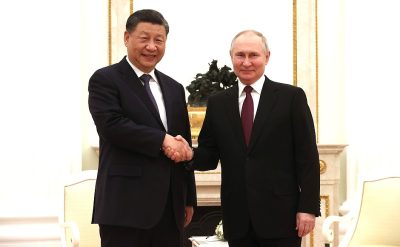
All Global Research articles can be read in 51 languages by activating the Translate Website button below the author’s name.
To receive Global Research’s Daily Newsletter (selected articles), click here.
Click the share button above to email/forward this article to your friends and colleagues. Follow us on Instagram and Twitter and subscribe to our Telegram Channel. Feel free to repost and share widely Global Research articles.
***
The Xi-Putin Summit (March 22-24) was a strategic summit of two “non-western” super powers. The outcome of the summit will have far-reaching implications for the future of mankind.
What the two leaders decided upon will be a strategic factor in the choice between a unipolar world and a multipolar world.
The Western media did not say much about the summit. This was to be expected. They seem to believe that their god-given mission is to demonize China and Russia and other nation states which are not Washington’s “vassal countries”.
The incessant demonization of China and Russia “does not make the West an Angel”. One can also demonize the West. There are several reasons for this.
It is about time for the mainstream media to have some decency in informing people about the truth so that humanity can choose the right kind of regime and leaders.
To be frank, I am disappointed with the media, especially the leading TV stations and the so called elite newspapers. I am sure that they knew what was going on during the summit, but they did not share what they knew with the public.
In this paper, I will be focussing on the following questions:
- Why the summit?
- What was the nature of the agreement?
- Is it feasible to create the multi-polar world?
Why the Summit
As far as I am concerned, the summit was a meeting of two countries hunted down by the West for “three unforgivable sins”.
- First, they have resisted against becoming Washington’s vassal countries.
- Second, they have become too rich and too powerful.
- Third, they have exerted political influence in the Third World undermining the interests of the West’s neo-colonialism.
To make the matter worse, the two countries did not confessed three ” mea culpa” to the West-god. This is something the West cannot accept.
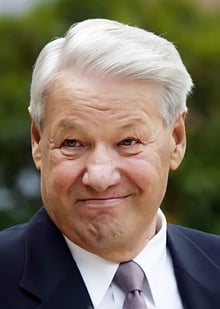 Since the collapse of the Soviet Union in 1989, the relation between the West and Russia has been characterized by the confrontation between Washington in a “hunter-hunted relation” against Moscow.
Since the collapse of the Soviet Union in 1989, the relation between the West and Russia has been characterized by the confrontation between Washington in a “hunter-hunted relation” against Moscow.
When the Soviet Union collapsed in 1989, the West thought that Russia could not recover from the total destruction of its economy.
Russia lost the members of the Warsaw Pact; its economy was down; the leaders under Boris Yeltsin were corrupt; and Russia’s international influence was almost wiped out.
Image: With President of the People’s Republic of China Xi Jinping. Photo: Sergei Karpukhin, TASS
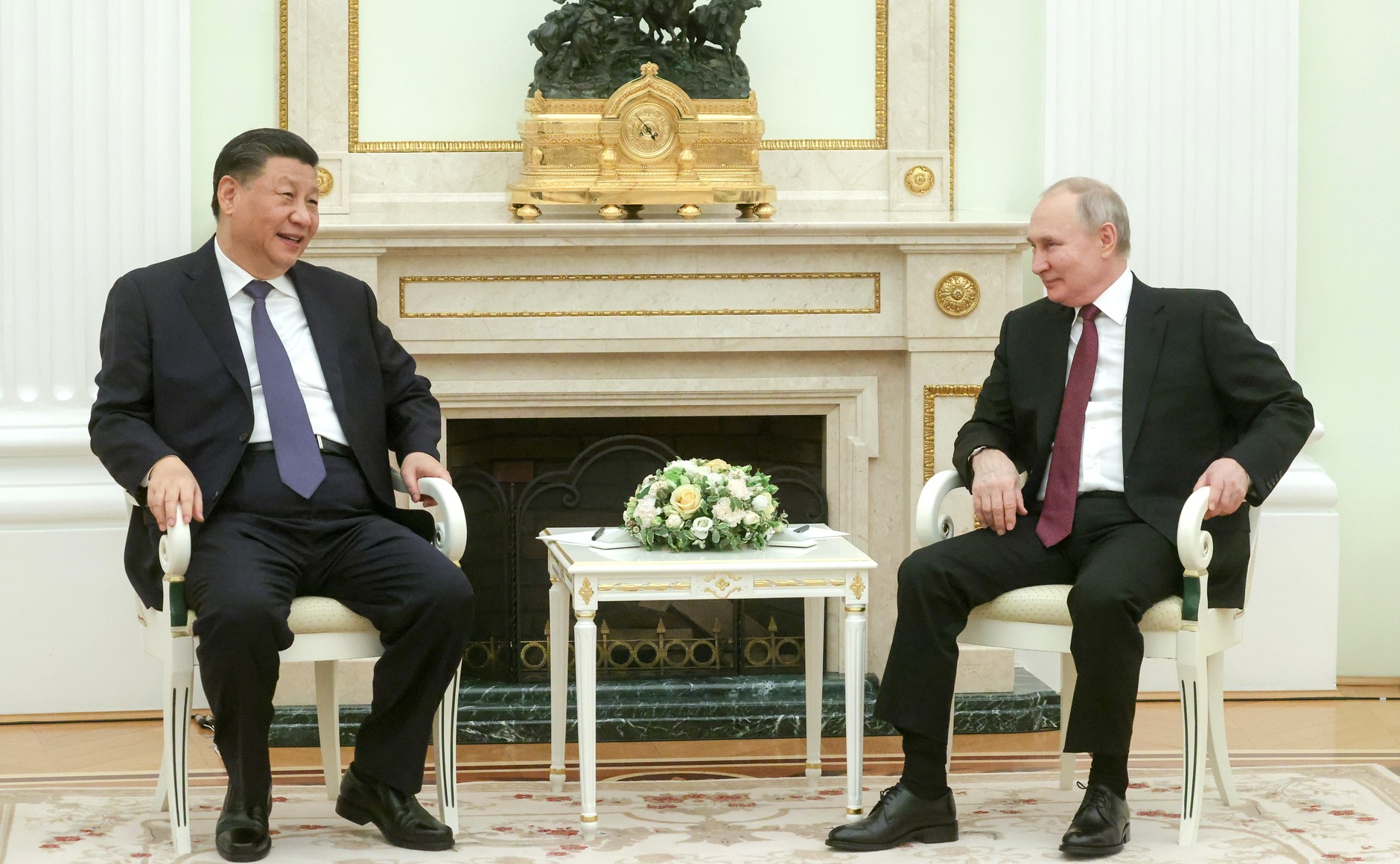
Vladimir Putin
But, a former KGB officer, Vladimir Putin came along and created sound foundations of a sustained economy, restored Russia’s military capabilities; it recovered its national pride and assured its dignity.
The West did not expect the recovery of Russia from the graveyard of the Soviet communist regime. But such recovery took place. This alarmed and displeased the West because of Russia’s three sins mentioned above.
To prevent further development of Russia, the West expanded NATO towards Russia’s border and armed the Azov-Nazi forces in Ukraine, which bombed the Russian speaking Donbass region since the Euromaidan uprising of 2014.
NATO has armed Ukraine enough to make Ukraine a fixed aircraft carrier right at the front gate of Russia capable of threatening its sovereignty.
For Russia, the militarization of Ukraine was an existential menace and it thought that it had to stop further US-NATO militarization of Ukraine. And Russia decided to conduct it’s so-called “special military operation” in February, 2022 despite the huge risk.
Vladimir Putin knew that the West would not stop attacking and hunting Russia until it was destroyed. Putin knew that he was gambling his political future and the destiny of Russia.
The Ukraine war will continue as long as it is profitable to the West’s war industry. Indeed, it is profitable to the military industrial complex and the defense contractors.
So the war may continue until Putin is “out of office” or until Russia is “destroyed” to the satisfaction of US-NATO and the West. This is a dangerous trap, because Russia cannot conduct this expensive war forever.
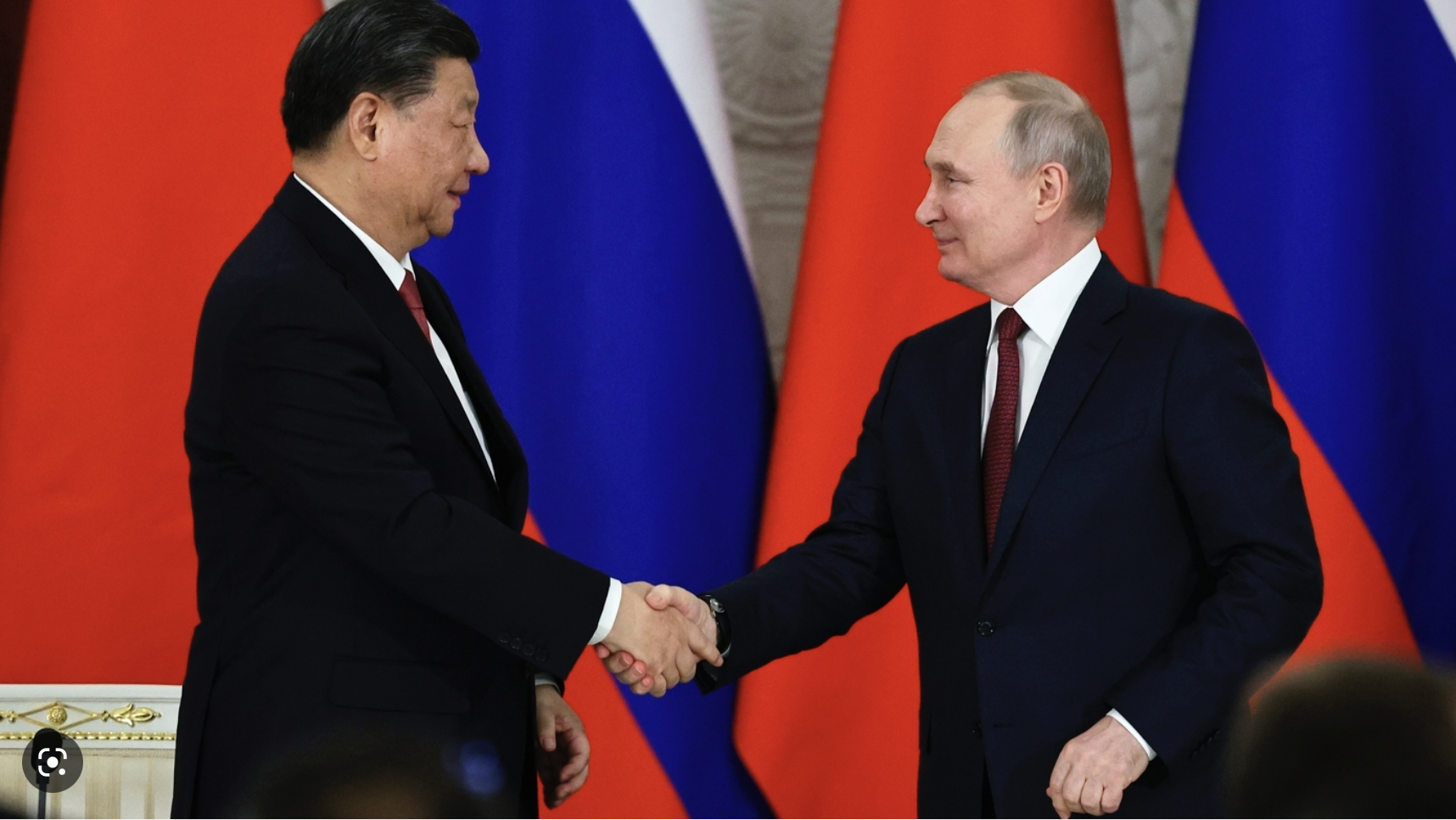 Therefore, Russia needs a friend who can support Russia not only for peace negotiations but also for what the Pentagon describes as “the long war”. Such a friend is Xi Jinping.
Therefore, Russia needs a friend who can support Russia not only for peace negotiations but also for what the Pentagon describes as “the long war”. Such a friend is Xi Jinping.
In fact, the Moscow summit confirmed this friendship.
When Xi Jinping left Moscow on March 25, he said to Vladimir Putin “Take care dear friend!” while Putin said ” Have a good trip!”
This kind of exchange of good wishes is only possible between trusted friends.
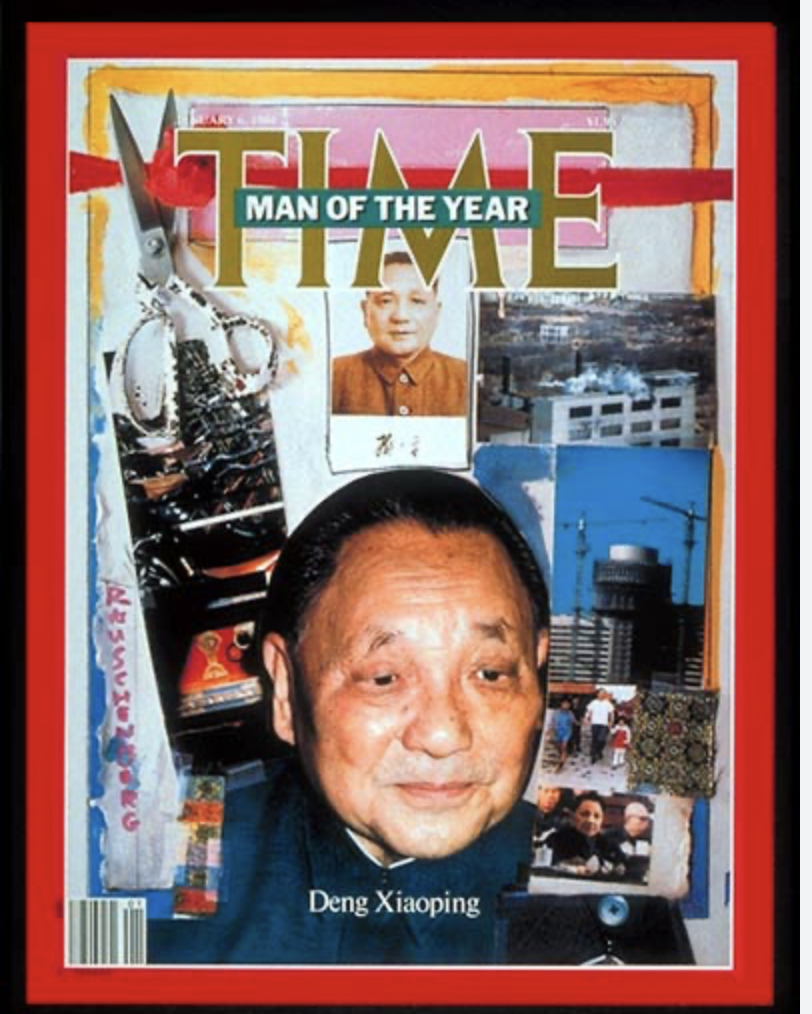 Now, as for China, since the normalization of diplomatic relations with the U.S. in 1972, and under the regime of Deng Xiaoping, China was “a good boy to the West” by preventing global inflation, offering (Made in China) factories and (cheap labor) assembly lines as well as markets for the West’s goods and services.
Now, as for China, since the normalization of diplomatic relations with the U.S. in 1972, and under the regime of Deng Xiaoping, China was “a good boy to the West” by preventing global inflation, offering (Made in China) factories and (cheap labor) assembly lines as well as markets for the West’s goods and services.
But, since Xi Jinping took power in 2012, China is no longer “the good boy” who dared not challenge the West.
Since Obama’s “Pivot to Asia”, the encircling anti-China net has become narrower and tighter and it is just at China’s front door.
In this context, Taiwan could possibly become “Asia’s Ukraine” in the next five or six years (according to Asian experts). Remember this. In five years, Japan may become a super power able to hit China due to sustained U.S. military support.
The West is becoming more aggressive and China knows that if Russia is destroyed, the next hunting victim will be China. Therefore, for China, Russia must survive.
China must save Russia. In other words, China and Russia are the targets of the West’s “hunting to destroy”.
So to speak, they are in the same boat floating in troubled waters. Is the boat large enough to accommodate other countries hunted down by the Washington Consensus?
What was the Nature of the Moscow Agreements?
The possible agreements between the heads of the two hunted countries would have included the following:
- The ending of the Ukraine war,
- The process of integration of the Russian and Chinese economies,
- Bilateral military cooperation
- The creation of a multi-polar world led by China and Russia.
Ending of Ukraine War
The survival of Russia and China depends on the outcome of the Ukraine war.
For both Russia and China, the end of the Ukraine conflict is a must. China has proposed 12-point peace plan:
- Respect for the sovereignty of all countries
- Abandoning of the Cold War mentality (good vs bad)
- Ceasing of hostility
- Resuming of peace talk
- Resolving the humanitarian crisis
- Protecting civilians and prisoners of war
- Keeping the nuclear plant safe
- Reducing strategic missiles
- Facilitate grain exports
- Stopping unilateral sanctions
- Keeping industrial and supply chain stable
- Promoting post-conflict reconstruction
These proposals include cease fire, peace talks, protection of civilians, plan for post-war reconstruction and removal of sanctions against Russia.
The West cannot accept this peace plan, because the “West’s war industry loves the war” and NATO wants to fight until the destruction of Russia and the China. Joe Biden is behind the West’s war industry and so is NATO.
China knew that the 12 point proposal mentioned above would be rejected by the West, but the West can no longer blame China for not doing something for the Ukraine-Russia conflict.
Russia welcomes the proposal. China is ready to negotiate peace directly with Ukraine, but without the participation of the West.
China-Russia Economic Integration
The bilateral trade was USD 190 billion in 2022. The summit led to 79 agreements for cooperation including the Power of Siberia II gas pipeline of 3,000 km long across Mongolia which will provide China with as much 50 billion cubic meters of LNG a year.
Russia is one of the richest countries in raw materials, while China has limitless manufacturing capabilities. The integration of these complementary economies can determine the shape of the global economy and it may allow the two countries to play the leadership role in the coming multi-polar world.
Military Cooperation
In addition, Sino-Russia military exercises take place regularly in the Yellow Sea and the East Sea. The combined military forces of these two countries may induce the Pentagon to think twice before playing with fire.
Is It Feasible to Create a Multi-polar World?
The perception of Xi Jinping about the multi-polar world is shown in the following statements.
Xi Jinping’s statement refers to the human experiences with various regimes.
We have tried liberalism, but it had the defect of violating equality and justice.
So we tried socialism, but it was not the ideal regime. It tried to assure equality and justice, but it was not perfect. So we adopted neo-liberalism, but it commits the awful sin of snatching the government from the people.
Whatever man does, it is never perfect, because we are all sinners.
Therefore, what we need is a pragmatic model suitable to each country’s history, traditional values and local conditions.
“The international community has recognized that no country is superior to others, no model of governance is universal, and no single country should dictate the international order. The economic interest of all mankind is in a world that is united and peaceful, rather than divided and volatile”. — Xi Jinping
The Eurasia Bloc (EAB)
Xi Jinping and Vladimir Putin seem to think that the Eurasia Bloc (EAB) is the economic and political entity which can play a central role for the creation of the multi-polar world.
The EAB is composed of Europe and Asia. Its land area is 55 million km2 which represents 36.5% of the total global land area of 148 million km2. Of 55 km2, Asia represents 81.0%.
But its population of 5.4 billion people represents 67.5% of the world population of 8 billion. Of 5.4 billion people, Asia accounts for 85.7%.
Its nominal GDP in 2022 was USD 63 trillion representing 61.0% of the world GDP of USD 103 trillion, Of USD 63 trillion, Asia accounts for 63.4%.
So it dominates the world in population and economy.
Eurasia is not yet a cohesive integrated entity.
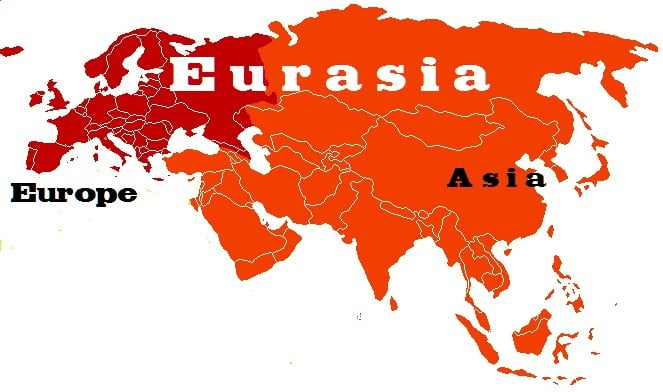 Europe is not yet ready to join China and Russia in building the new bloc.
Europe is not yet ready to join China and Russia in building the new bloc.
However, sooner or later, if Russia survives and if China can resist the onslaught of the West (aka US-NATO), the EAB may be able lead the creation of a multi-polar world.
There are signs of the desire on the part of the Middle East, African and South American countries to join the movement for a new multi-polar world. Saudi Arabia and Iran seem to be interested in joining the movement.
While Xi Jinping was in Moscow, 40 African delegations were in Moscow. The BRI members along with the members of the Shanghai Cooperation Organization (SCO) will be the driving force of the creation of the multi-polar world.
Coming back to the question of the feasibility of the new multi-polar world, the answer depends on the outcome of the competition between the U.S. dominated uni-polar world and the multi-polar world which China and Russia want to create.
The outcome of this competition depends on how much the multi-polar world’s financial system, ideological regime, and military power can be autonomous vis-à-vis the financial, ideological and military power of the uni-polar world ruled by the U.S.
The financial autonomy of the Eurasia Bloc (EAB) for economic development can be partially attained through the Asia Infrastructure Investment Bank (AIIB) with 106 members, BRICS New Development Bank (NDB). These two banks can grow and compete with the World Bank (WB).
The freedom from the domination of the US dollar can be made possible through a process of de-dollarization. The U.S. has been using US dollars as a powerful weapon to promote the interests of the U.S. and its allies at the expense of countries that are considered as non-friendly to Washington.
But, the EAB can develop its own monetary system through the de-dollarization of reserve funds on the one hand, and on the other, the de-dollarization of trade.
In Asia, there is the Chiang-Mai Initiative Multi-lateralization (CMIM) with funds of USD 240 billion. Its function is to bail out member countries (ASEAN + three) in difficulty in hard currencies. This reduces the dependence on the U.S. controlled International Monetary Fund (IMF).
Now, the dependence on US dollars in international trade can be reduced by the promotion of international trade paid with non-dollar currencies. Already, in Asia, trade is conducted with non-dollar currencies such as Yuan and the Ruble.
As for the ideological war, the attraction of free enterprise and liberal democracy preached by the West has been much tarnished due to the neo-liberal economic reforms which have made national governments virtually powerless. These reforms have also created dangerous income gaps between a wealthy minority and a majority of impoverished households.
The excessive unequal income distribution is one of the factors of a declining economy both in Japan and the West.
Now, the U.S. military domination will continue, but increasing military and economic capabilities of the EAB led by China, Russia, will undermine US-NATO hegemony.
To sum up, the Xi-Putin summit may signify the determination of China and Russia to ensure global peace but also prepare for the possibility of a “global war” instigated by US-NATO.
What comes out of the summit is clear. China and Russia will not surrender, they are ready to fight.
We are at Dangerous Crossroads
Under this grave situation, unless the West accepts to engage in peace negotiations with China and Russia, humanity may be thrust into a World War III scenario.
May God help us all!
The war must be stopped and we have to find the way to enforce “peaceful co-existence” between the West and the rest of the humanity.
Only the U.S. can stop this fateful war.
*
Note to readers: Please click the share button above. Follow us on Instagram and Twitter and subscribe to our Telegram Channel. Feel free to repost and share widely Global Research articles.
Dr. Joseph H. Chung is professor of economics at Quebec University in Montreal (UQAM) and member of the Research Center on Integration and Globalization (IEIM-UQAM). He is a Research Associate at the Centre for Research on Globalization (CRG).
Featured image: With President of the People’s Republic of China Xi Jinping. Photo: Sergei Karpukhin, TASS

